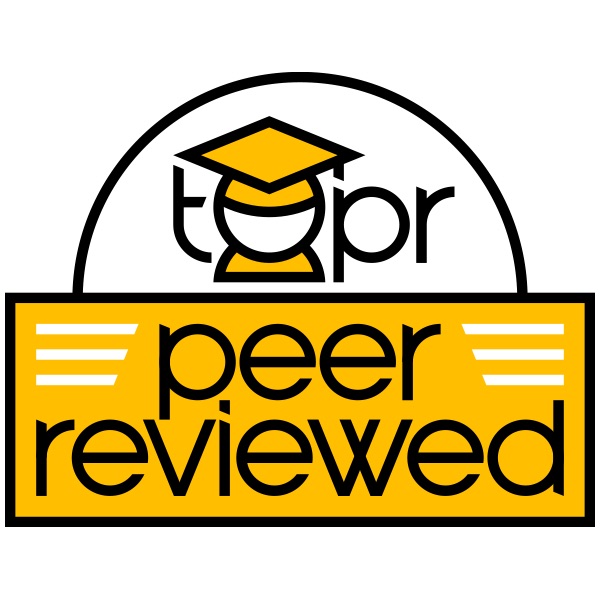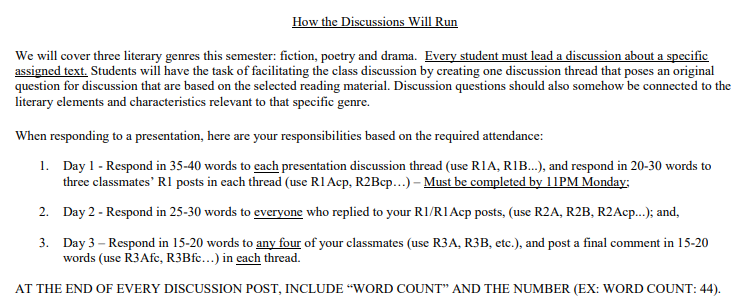
Although not experts in the discipline, there have been benefits in having students lead online discussions. Students may be more comfortable to participate in the discussion when it is led by an equal member of the class, rather than the instructor who is perceived as the authority (Lim, Cheung, & Hew, 2011). Questioning from an instructor may prompt students to view the questions as a form of assessment, rather than a tool to drive the discussion, as they do with peer questioning (Mazzolini & Maddison, 2007).
Other studies noted that peer facilitation increases the activity of the discussion. In a study on online discussions, students responded to messages more actively and engaged in more in-depth discussions when discussions were moderated by a peer (Seo, 2007). Hew and Cheung (2011) found that the higher level knowledge construction occurred when peers provided comments, showed appreciation and encouragement, and summarized the discussions. Having peers facilitate frees up the instructor to focus on the teaching presence tasks that peers cannot fill; namely, the expertise and direct instruction aspects (Zydney, deNoyelles, & Seo, 2012).
Link to scholarly artifact(s)
Instructor: Shamika Mitchell, Rockland Community College, SUNY
Course: Literature
I engage in Socratic questioning, use scaffolding, and manage online discussions through a variety of methods. One in particular is to require students to lead discussion threads. As part of their assignment, they must facilitate a discussion on a specific text, and manage that conversation for the entire week. Figure 1 clarifies the expectations for all peers regarding discussion facilitation.

The assignment instructions (Figure 2) require students to share their feedback about the text, and to ask a question to the class.

For example, the student might ask why a poet chose to use a specific word or phrase in a line of the poem, or, when comparing the literary play to the cinematic version, the student might ask student about differences in characterization. During the discussion, students can unpack the significance of the literary text and explore their interpretations. By doing it this way, students learn ways to keep the conversation going, keep their classmates on task, and they learn to navigate a conversation in which several people are engaged. It is a leadership role in an academic environment.
I use scaffolding for the entire semester; each assignment builds on the previous one, and they lead up to the final assignment – the research paper – which is a cumulative, comprehensive assignment. Throughout the process, unit exams and shorter writing assignments help students to craft their ideas and edit as needed. The final paper is a curated, polished essay that has developed over a span of weeks. The discussions also help students to cultivate ideas and develop their arguments (Figures 3 and 4).


Managing discussions in a larger course can be challenging. My online courses are usually capped at 20, but sometimes a few more students are allowed to add. Because I require all students to comment on each others’ posts, it can become cumbersome to sort through the discussion forums. My observations have confirmed that this approach is the most useful, because students are required to engage with each other. Furthermore, I include word count requirements for every post, which prohibits minimalist replies. Our discussions have been quite lively, insightful and productive.
Links to scholarly references
Hew, K. F., & Cheung, W. S. (2011). Higher-level knowledge construction in asynchronous online discussions: An analysis of group size, duration of online discussion, and student facilitation techniques. Instructional Science, 39(3), 303-319. https://doi.org/10.1007/s11251-010-9129-2
Lim, S. C. R., Cheung, W. S., & Hew, K. F. (2011). Critical thinking in asynchronous online discussion: An investigation of student facilitation techniques. New Horizons in Education, 59(1), 52-65. Retrieved from http://www.hkta1934.org.hk/NewHorizon/abstract/2011May/5.pdf
Mazzolini, M., & Maddison, M. (2007). When to jump in: The role of the instructor in online discussion forums. Computers & Education, 49(2), 193 213. https://doi.org/10.1016/j.compedu.2005.06.011
Seo, K. (2007). Utilizing peer moderating in online discussions: Addressing the controversy between teacher moderation and nonmoderation. American Journal of Distance Education, 21(1), 21-36. https://doi.org/10.1080/08923640701298688
Zydney, J. M., deNoyelles, A., & Seo, K. (2012). Creating a community of inquiry in online environments: An exploratory study on the effect of protocols on interactions with asynchronous discussions. Computers & Education, 58(1), 77-87. https://doi.org/10.1016/j.compedu.2011.07.009
Citation
Mitchell, S. (2019). Ask students to lead the online discussion. In A. deNoyelles, A. Albrecht, S. Bauer, & S. Wyatt (Eds.), Teaching Online Pedagogical Repository. Orlando, FL: University of Central Florida Center for Distributed Learning. https://topr.online.ucf.edu/ask-students-to-lead-the-online-discussion/.